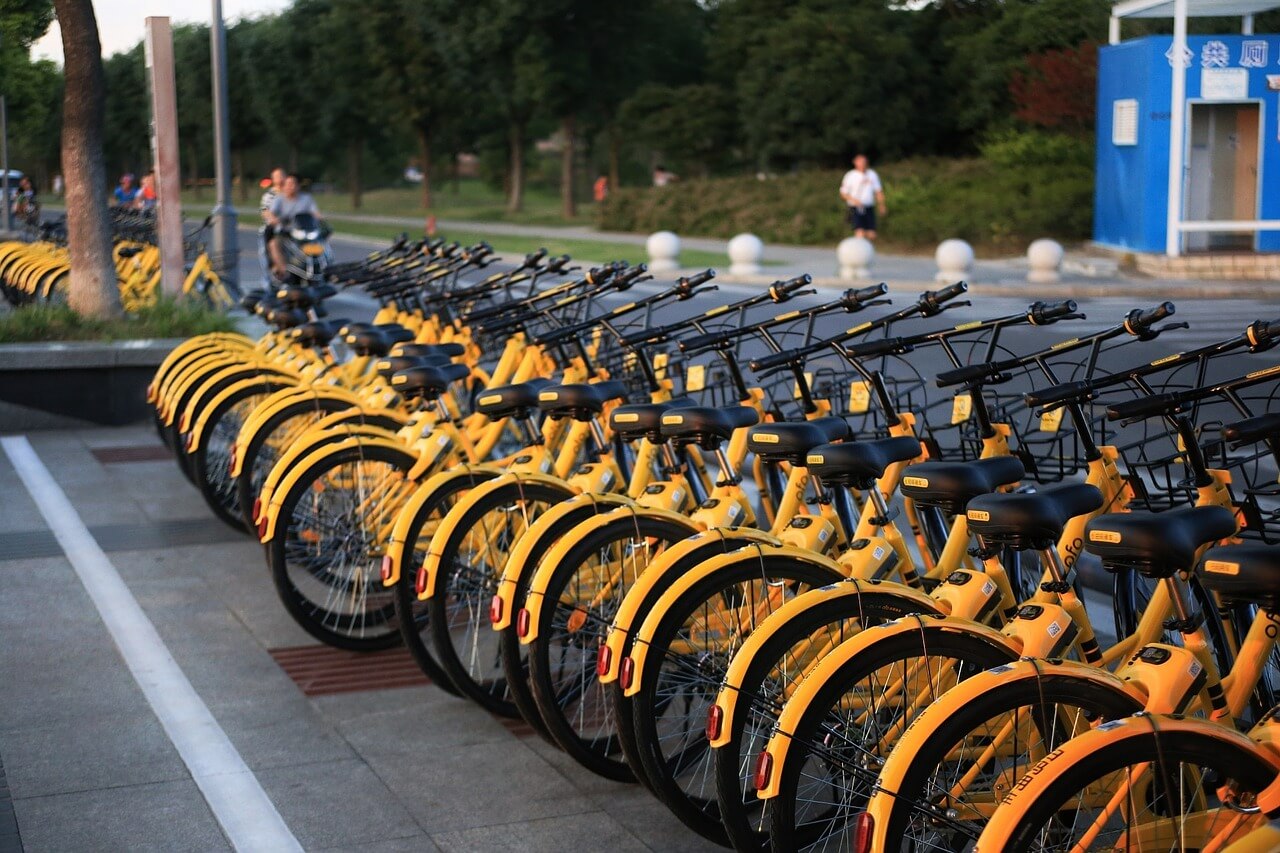
Uber recently acquired bike -share Jump. Dockless bike sharing is now a US$1.6 billion market, with China spearheading growth. Source: Pexels
Dockless bike-share boom: Why it makes sense in Asia
DOCKLESS bike sharing has gone from nothing, to a US$1.6 billion market in 8 years, with more than 200 million recorded users in 2017, according to iiMedia Research.
This is a fast growing market; even Uber recognized that and snapped up New York based bike-sharing platform Jump.
The rapid growth of the bike sharing market took over where traditional bike sharing failed. Without the hassle of finding docking stations, dockless systems such as Mobike and ofo are able to capture a larger user base in China. Both companies have since expanded overseas.
The market in China is well over-saturated. There are over 40 bike sharing companies, 15 of them in Beijing alone, Forbes reported. In contrast, there are just a couple of notable bike-sharing platforms in other parts of Asia.
Having said that, for operations outside of China, bike sharing is growing at a mind-boggling speed. Mobike and ofo found success in several Asian countries including Thailand, Singapore, Malaysia, and India. Both companies also have operations in Europe and Latin America. Singapore based oBike also expanded rapidly, now serving 24 countries since its launch 14 months ago. Grab is also working with oBike to provide bike sharing services.

ofo found success in several European and Latin American countries, as well as in Thailand, Singapore, Malaysia, and India. Source: Pixabay
It is hardly surprising. Traffic congestion is a major frustration for many countries in the region, including Indonesia, India, Thailand, Philippines, and Malaysia. As cities turn to car-sharing, ride hailing, and improvements to public transport to ease traffic congestion, a segment of the market is being neglected.
Unlike cities such as New York and London, the public transportation system in Asia, especially in Southeast Asia, is less than ideal. A majority of the countries are still developing their infrastructure; It’s not always easy to walk to the next bus and train stations.
For those stuck between the awkward “too short a ride, too long a walk”, dockless bikes provide a link for short trips, without the need to look for specialized bike docking stations. Bike-share is not only a mode of transportation but a offers better connection at a lower cost.
However, the system is not without fault. China being a prominent example, there are over two million bikes in circulation. The nature of dockless bikes also means bikes are often left haphazardly across pedestrian paths, car parking spaces, or other dangerous locations.
Authorities in China have been clamping down, seizing bikes that have been left cluttering the area, presenting as a hazard. Mobike, ofo and oBike have also seen their bikes being impounded in Singapore after users left the bikes obstructing foot paths.
Outside of China, the bike sharing market remains a huge opportunity, especially for governments looking for better alternatives to ease congestion. Infrastructure and public transportation remains key to developing a more convenient city, but connections like bike sharing remains crucial.
READ MORE
- Strategies for Democratizing GenAI
- The criticality of endpoint management in cybersecurity and operations
- Ethical AI: The renewed importance of safeguarding data and customer privacy in Generative AI applications
- How Japan balances AI-driven opportunities with cybersecurity needs
- Deploying SASE: Benchmarking your approach


